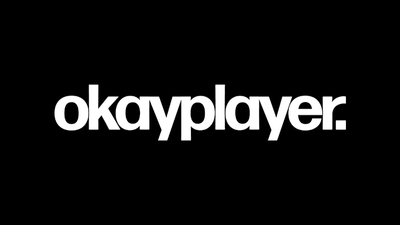Dear White People Mad About 'Dear White People'...
*Before reading I am aware that many of you will take offense to the blanket statement that is made throughout this piece. If you're not a part of the problem you shouldn't take offense. If you are, well, that's on you*
Yesterday came the announcement that the Dear White Peoplespinoff series was coming to Netflix on April 28. Accompanying that announcement was a 34-second trailer, that features lead character Samantha White informing her white Winchester University classmates of what is and isn't an acceptable Halloween costume.
Merely 24-hours following its release, the trailer has received more than 500,000 views on YouTube and is nearing 100,000 dislikes, primarily from white people offended that Netflix would allow such an "anti-white" (their words, not ours) series to premiere on its platform. Some enraged Netflix subscribers have also canceled their accounts and have created the #BoycottNetflix in opposition to the forthcoming series, while others have not only canceled their accounts but made lengthy response videos to the trailer.
Based off of a 34-second teaser trailer and its title, Dear White People has been described as promoting "white genocide" and glorifying "anti-white racism and aggression." Such analysis is not only cluelessly misinformed but speaks to an issue that has been at the center of Dear White People since its debut as a feature film back in 2014 — white privilege.
Most responses to the series have failed to acknowledge one of the more poignant parts of the trailer — a sequence of pictures in which white classmates dress up in blackface. Blackface is controversial in the context of America's history because the practice represented a form of "art" in which non-black performers represented black people. The practice propelled problematic stereotypes of black people, resulting in distorted representations of black people in America and dehumanizing an entire race in the process.
White privilege allows white people to ignore what is a commentary on a still divisive issue in our country, and generalize it as "race baiting." There's one particular response video in which the user seems baffled that Dear White People is focusing so much on racist Halloween costumes.
"When's the last time you saw a white person dress up as a black person for Halloween? In an intentionally offensive way," asks the user. Well, dude: here, 2013; here, 2014; here, 2015; and here, 2016. However, the greatest irony that comes from the user is when he (and many of the other users who have made response videos) seem frustrated that black people are telling white people the ways in which they can and are being offensive.
The reason why most white people that dress up as blackface aren't aware that they're being intentionally offensive, is because they aren't aware of America's history with blackface. If they were they probably wouldn't be dressing up in blackface, right? To generalize Dear White People as a series focused on racist Halloween costumes, absolves white people of holding themselves to task and using the series as a means of not only confronting America's past, but understanding the ways in which their privilege works. At one point the user implies that his perspective on the series is shaped on where he's from, therefore justifying his belief that this issue of racist Halloween costumes "aren't even real" and "aren't even happening." If you have the time to create a five minute video of your critique of a 34 second trailer, you have the time to look up blackface (insert the year of your choice here) in America.
Although the trailer for Dear White People focuses on racist Halloween costumes against black people, the commentary being made also speaks to other offensive costumes against marginalized people. My alma matter, the University of Texas at Austin, has had to deal with a number of controversial racist parties in the last several year. The last one was back in 2015 when a fraternity held a "border-patrol themed" party, in which guests (primarily white) showed up wearing "construction gear, ponchos, and sombreros," while others wore hard hats and nametags labeled "Jefe" and "Pablo Sanchez."
In 2013, Duke University had to deal with a controversial racist party, in which a fraternity had an "Asian-themed" event called a "Racist Rager." A report from Gawker detailed everything from the problematic email invites, to images taken from the party, in which guests (once again, primarily white) wore conical hats and geishas.
To someone that isn't being directly affected by this, it's easy to simplify racist costume controversy as something that is "not happening." But once unpacked, this controversy speaks to larger problems rooted in our country's racist history: where marginalized people are caricatured for the amusement of people that are obviously unaware that what they are doing is wrong.
Dear White People's 34-second trailerdoesn't just speak for black people, but any and all marginalized cultures that find themselves simplified to a certain image and idea. "I want those who are chronically unseen in the culture to feel seen," Dear White People creator Justin Simien wrote on Twitter. "And I want those willing to extend empathy to experiences unlike theirs to understand their humanity more deeply."
For white people mad about a series called Dear White People, you only have yourself to blame.
If you weren't contributing to the problem, this wouldn't even be a topic that needed to be discussed. So, dear white people that are mad about Dear White People — be mad at yourselves.
